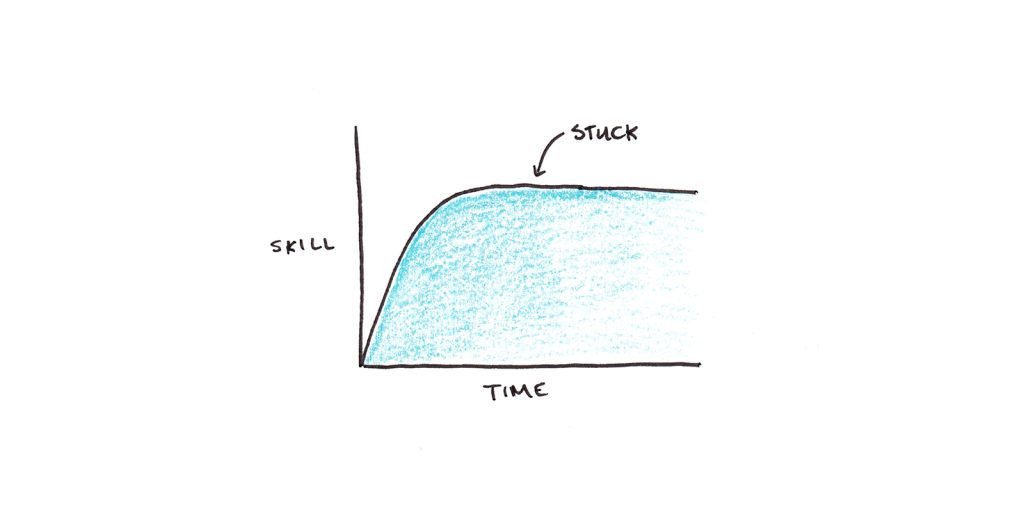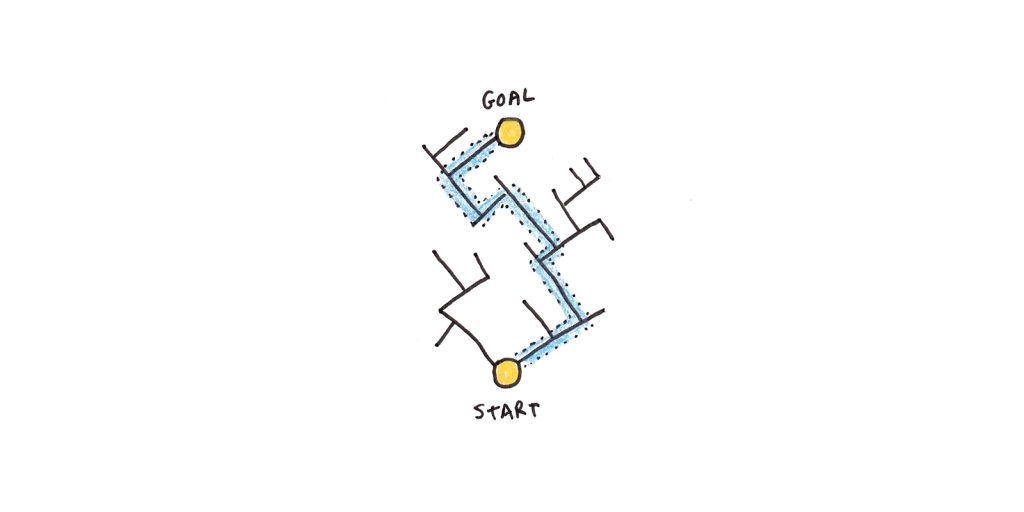This is the third lesson in Cal Newport and my week-long series on career improvement. Next week, we are opening our popular Top Performer undertow for a new session. Check out the first and second lesson here, in specimen you missed them.
The 10,000-hour rule, the idea that it takes well-nigh that long to get really good at anything, became popular without Malcolm Gladwell cited it in his 2008 bestseller, Outliers.
But does the research unquestionably show that all we need is ten-thousand hours of practice to get really good? Not quite
Anders Ericssons work on deliberate practice was the understructure for Gladwells reporting on the 10,000-hour rule. Yet, Ericssons research doesnt suggest that simply doing something a lot leads to reliable improvement. Instead, he found that stagnationnot progressis typical and most people plateau far unelevated their potential.
Violinists who went on to wilt concert players and those who became music teachers, for instance, did not differ significantly in the number of hours spent playing. However, the top performers spent far increasingly time engaged in difficult, skill-pushing work, while the stereotype players spent increasingly time listening to music and playing songs.1
Similarly, research in medicine does not suggest that doctors get steadily largest as they treat increasingly patients. In fact, increasingly wits might make doctors worse! They often wilt less constructive as increasingly time elapses since their medical school training.2
Ericsson found that the difference between growth and stagnation was a process he tabbed deliberate practice. He specified this as practice under the guidance of a coach, withal with firsthand feedback well-nigh performance. Without this, performance stalls.

Coaching Feedback = Improvement
Coaching is often necessary considering the performing and observing ones own performance can rarely be washed-up simultaneously.
In dynamic skills, like sports or surgery, self-observation competes for limited mental resources needed for performancewhich is why were warned well-nigh overthinking. A mentor acts as an outside observer to notice what were incapable of seeing.
Even in skills that permit reflection, like writing or mathematics, resurgence depends on stuff pointed to the knowledge and methods you lack. By definition, these cant be the things you once know, so a mentor or tutor can step in to provide them for you.
Feedback is necessary considering upper performance depends on the subtle tuning of our skills. This tuning process requires reinforcement based on timely, well-judged feedback from the environment.
How to Structure Your Resurgence Environment
Making improvements in your work is easier said than done. While its easy to picture coaching for a golf swing or a chess play, its harder to envision it for leading a team meeting or pitching a client.
Indeed, the difficulty of managing the day-to-day concerns of the work was one reason Anders Ericsson drew a sharp stardom between performance and practice. Its untellable to focus on resurgence and learning when your unshortened sustentation is devoted to doing the job.
Yet, theres moreover a risk of focusing your resurgence efforts on something completely uninfluenced from your work. Unless youre unrepealable youve isolated the word-for-word skill that needs improving, its easy to work on things that are irrelevant to your career capital. You can spend hours memorizing syntax, plane though that isnt what makes programmers excellent. You can perfect your public speaking, plane though stuff good at listening intently is increasingly useful for leadership.
How do you make progress?
In Top Performer, Cal Newport and I oppose that the key is creatingand executinga deliberate practice project. This project should push your skills. It should be on the whet of your repletion level, forcing you to raise the level of your craft or reap a new ability. At the same time, it should be designed to ensure you can get quick feedback and guidance, so youre not flailing virtually aimlessly.
Todays Homework
Designing a good project takes some serious thinkingespecially if its a project youll unquestionably do, not just succubus about. The starting point to any good project is to generate some ideas.
In the comments, write lanugo one worriedness you could do that would modernize an important skill in your career.
In the last lesson, Ill dig deep into why we should superintendency well-nigh career resurgence in the first place. If you are ready to invest in strategic projects that will help you level up in your career, Cal Newport and I are opening a new session of Top Performer on Monday.
The post Why People Stop Improving first appeared on Scott H Young.
The post Why People Stop Improving appeared first on Scott H Young.






